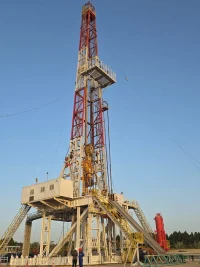Bamburi Cement Limited in conjunction with Ministry of transport, infrastructure, housing and urban development at the weekend held a one-day training workshop on use of alternative technologies and materials in road construction in Nairobi.
Other partners involved in the workshop include Bamburi’s parent company LafrgeHolchim and Jaycee- a market leader in Fly Ash exports from India and a strategic partner of LafargeHolcim.
The workshop that targeted the materials testing & research division in the State department of Infrastructure at the Ministry, zeroed on two models namely Roller Compacted Concrete (RCC) technology and Hydraulic Road Binders (HRB) in road construction.
Speaking during the workshop, Bamburi’s Innovation and Technical Services Manager Fidelis Sakwa said: “This workshop demonstrates our concerted effort to innovations and local creation of awareness on contemporary global technologies and approaches for use in construction of roads locally.”
Hydraulic Road Binders technology offer the potential of use of readily available, cost effective cementitious products for soil treatment and stabilisation in road construction.
The use of hydraulic road binders (HRB) is a significant milestone heralding a major change in binders’ specification in road construction which hitherto has been highly restrictive, allowing only the use of a CEM I 42.5 cement, traditionally known as Ordinary Portland Cement (OPC).
On the other hand, Roller compacted concrete (RCC) involves a technology whereby special concrete is manufactured with very little water and compacted with heavy rollers as opposed to conventional concrete that typically has more water and is compacted by vibrators.
RCC can be surfaced with a small layer of asphalt or left unsurfaced and has a significant advantage of immediate trafficking by vehicles as compared to conventional concrete that requires 28 days of curing. The RCC can be manufactured with flyash – a waste material in thermal power manufacturing plants that burn coal – and mixed with cement and aggregates following a special mix design process to end up with an alternative suitable material in road construction.
The workshop was conducted by LafargeHolcim specialists, Mike Fisher and Hoa Lam from South Africa and Singapore respectively.
In 2014, the Government, through the Kenya Rural Roads Authority, challenged cement manufacturers to offer a low-cost product for use in soil stabilization. Consequently, an action plan to develop Hydraulic Road Binders (HRB) for soil stabilization was agreed upon. Since then, Bamburi Cement Limited (BCL) has taken the initiative to help fast-track adoption and use of HRBs by producing two products conforming to international HRB standards.
In 2006, Bamburi Cement collaborated with the then ministry of roads in the design and construction of the Mbagathi Way concrete road project.













Leave a comment